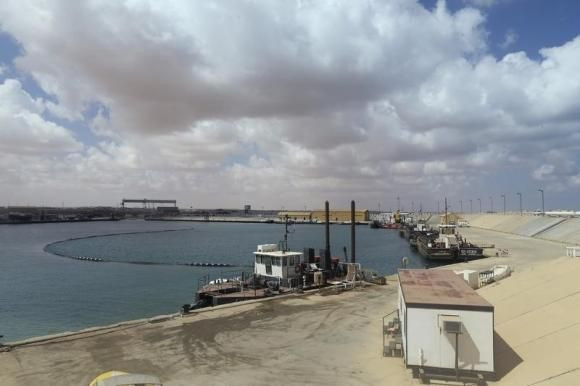Recent Violence Will Hurt Libyan Economy, Oil Revenue, Experts Say

Intense fighting between rival militias in Libya has destroyed government buildings, closed Tripoli’s airport, shut down Libyan airspace indefinitely, caused the evacuation of United Nations staff and other international companies, and pushed the country’s oil industry to the brink of total collapse. Experts said the state of the economy is essentially dependent on rogue militias that have taken over important cash-producing institutions.
In May, renegade Gen. Khalifa Hifter launched a campaign to take over the government and gained the support of more than 6,000 soldiers in the eastern part of the country. The band of rebels attacked government targets and claimed they were fighting off “terrorists.” Since then, militias, some aligned with the government and some operating independently, have been fighting back against Hifter and his forces. The conflict has left the country, and its economy, largely divided and in the hands of rebels.
For example, Mohammed Hejazi, spokesman for the anti-Islamist military campaign launched by Haftar, ordered Qatari and Turkish nationals to evacuate eastern Libya. As the Qataris and Turkish moved out, so did their money. And militias announced earlier last month the blockading of the Es Sider and Ras Lanuf ports.
“The Libyan economy is a mess,” Paul Sullivan of the National Defense University in Washington said. "The economy really is not being managed due to the chaos in the country. Libya also has a long history of economic and resource mismanagement, which could take a long time to get over. "
The Libyan economy relies heavily on its oil production—it has Africa’s second-largest oil reserve—and the escalation of violence over the past two months has caused a dip in oil revenue generated from exports. Libya's National Oil Corp. offered the first crude oil from its eastern Ras Lanuf terminal for its end-July loading after militia groups announced they would end their blockade. But the ports will not begin exporting until August, according to a Wall Street Journal report.
A report published this month by the Economist Intelligence Unit said oil output in the country is expected to fall for the rest of 2014 and produce a much lower revenue than 2013. Despite the drop in export revenue from oil, the Libyan Central Bank announced in a statement June 26 that it remains committed to funding the salaries and subsidies components of the budget, but experts said it is unlikely that will actually happen.
Although the fighting has interrupted life in Libya, especially in Tripoli and Benghazi, it is unclear how the average citizen is affected economically by the fighting. Sullivan said gathering data about households, small businesses and other microeconomic levels is “close to impossible.”
“But one can make guesstimates. I am sure the average Libyan feels it every day,” Sullivan said.
According to the Economic Intelligence Unit, nonoil revenue is forecast by the Libyan parliament to increase in the current year, but it is unlikely to grow significantly, given the inefficiency of the government and the lack of control over Libyan borders to monitor imports and exports of goods. The analyst organization said that because of depressed oil revenue, a raid on the Central Bank of Libya's reserves to keep the economy afloat is inevitable.
"We may not see peace and stability in Libya in 2015, or even 2017," Sullivan said.
© Copyright IBTimes 2024. All rights reserved.




















